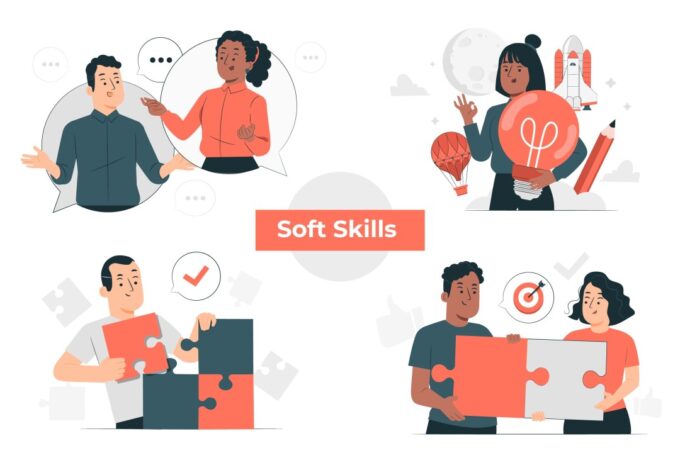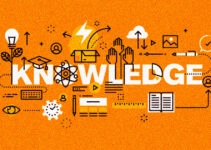Soft skills are becoming increasingly essential in education. These skills, such as communication, teamwork, problem-solving, and adaptability, are not only vital for academic success but also for personal and professional development. Schools must prioritize the teaching of soft skills to prepare students for the challenges of the modern workplace and life.
The importance of these skills cannot be overstated, as they help students navigate complex social environments, enhance their learning experiences, and build strong relationships with peers and teachers. For more insights on this topic, check out the article by Nikita Mishin.
Communication Skills

Source: corwin-connect.com
Communication is one of the most critical soft skills students need to develop. Effective communication involves expressing thoughts clearly and listening attentively to others. It allows students to participate actively in class discussions, collaborate on group projects, and build strong relationships with teachers and classmates. Students with strong communication skills can articulate their ideas more effectively in written assignments and presentations, which can lead to better academic performance.
Non-verbal communication is equally important. Body language, eye contact, and facial expressions play a significant role in how messages are perceived. Schools should encourage students to practice both verbal and non-verbal communication to become more confident and effective communicators.
Teamwork and Collaboration
Teamwork and collaboration are essential skills that students need to succeed in both academic and professional settings. Working in groups helps students learn to share ideas, delegate tasks, and support each other to achieve common goals. These experiences teach students how to navigate different personalities and work styles, which is invaluable in any career.
In the classroom, collaborative projects can foster a sense of community and teach students the importance of working together. These projects also provide opportunities for students to develop leadership skills and learn how to give and receive constructive feedback. Schools that emphasize teamwork help students build the skills necessary to thrive in a collaborative work environment.
Problem-solving and Critical Thinking

Source: gettingsmart.com
Problem-solving and critical thinking are crucial skills that enable students to tackle complex challenges and make informed decisions. These skills involve analyzing situations, identifying potential solutions, and evaluating the best course of action. Developing strong problem-solving abilities helps students approach academic tasks with confidence and creativity.
Schools can promote critical thinking by encouraging students to ask questions, explore different perspectives, and engage in thoughtful discussions. Problem-based learning, where students are presented with real-world problems to solve, can be an effective way to develop these skills. By fostering a culture of curiosity and inquiry, schools can help students become more adept at navigating the complexities of the modern world.
Adaptability and Resilience
In an ever-changing world, adaptability and resilience are essential skills for students to develop. These skills enable students to cope with change, overcome setbacks, and remain focused on their goals. Adaptable students can adjust to new situations and environments, while resilient students can bounce back from challenges and continue to persevere.
Academies can help students develop adaptability and resilience by providing opportunities for them to face and overcome challenges. Encouraging a growth mindset, where students see mistakes as learning opportunities, can also foster resilience. By teaching students to adopt change and stay resilient, schools can prepare them for the uncertainties of the future.
Emotional Intelligence

Source: study.uq.edu.au
Emotional intelligence is the ability to recognize, understand, and manage one’s emotions, as well as the emotions of others. This skill is essential for building healthy relationships, managing stress, and making informed decisions. Students with high emotional intelligence are better equipped to handle conflicts, empathize with others, and navigate social situations.
Schools can promote emotional intelligence by incorporating social-emotional learning (SEL) programs into the curriculum. These programs teach students skills such as self-awareness, self-regulation, social awareness, relationship-building, and responsible decision-making. By fostering emotional intelligence, schools can help students develop the interpersonal skills needed for success in both personal and professional life.
Leadership Skills
Leadership skills are valuable not only for those who aspire to leadership positions but for all students. Leadership involves setting a vision, motivating others, and guiding a team towards achieving goals. Developing leadership skills can help students become more confident, responsible, and proactive.
Academies can cultivate leadership skills by providing students with opportunities to take on leadership roles, such as leading a group project, organizing events, or participating in student government. Leadership training programs and workshops can also be beneficial. By nurturing leadership skills, schools can empower students to become effective leaders in their communities and future careers.
Conclusion

Source: linkedin.com
Soft skills like communication, teamwork, and problem-solving are crucial for success in school and future careers. By learning these skills, students will be better prepared for the real world. Schools should focus on developing these important abilities alongside academic subjects.
This will give students a well-rounded education and the tools they need to succeed in an uncertain future.



